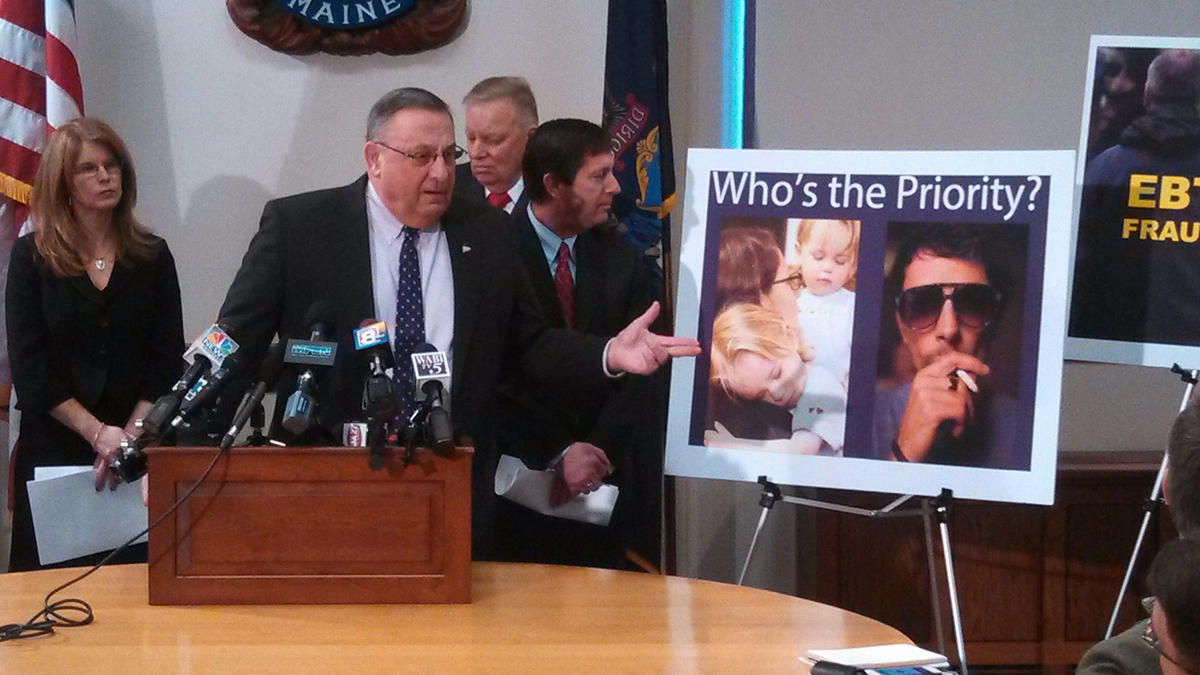Maine’s Pugnacious Governor Leaves Behind A Complex Legacy

Gov. Paul LePage announces his legislation to revamp welfare, including limits on what could be purchased with food stamps. Photo by Mal Leary for Maine Public
For the past eight years, Gov. Paul LePage has been the gravitational center of Maine politics, pulling traditionally staid disputes over state policy into an orbit of bellicosity, and defying long established standards of behavior for elected officials. He was, as he has said, “Trump before there was Trump.”
On Jan. 2, LePage’s second and final term will end when his longtime political foil – Democrat Janet Mills – is sworn into office. The approaching transition of power has prompted the typical retrospective analysis of the individual who controlled the state bureaucracy and bully pulpit for nearly a decade. But reviewing LePage’s two terms as governor is a complicated exercise.
LePage, 70, long ago disengaged with a Maine press that he repeatedly disparaged for, as he saw it, treating him unfairly. Throughout the past year, any queries into his daily activities, or into the reasons behind his policy decisions, have been relegated to the impromptu press gaggle, or reserved for the whimsical curiosity of his preferred interviewers on sympathetic, conservative talk show programs.
But an analysis of Gov. LePage’s tenure will likely conclude that the native son of Lewiston, who says his rise from poverty and abuse shaped his pugnacious personality, was profoundly consequential on Maine politics and state laws.
His two terms coincided with the national recovery from the recession. That recovery is reflected in Maine’s recorded low unemployment, but experienced more acutely in the southern regions of the state that opposed the governor’s policies than in the rural areas that sent the hard-charging conservative to the Blaine House.
